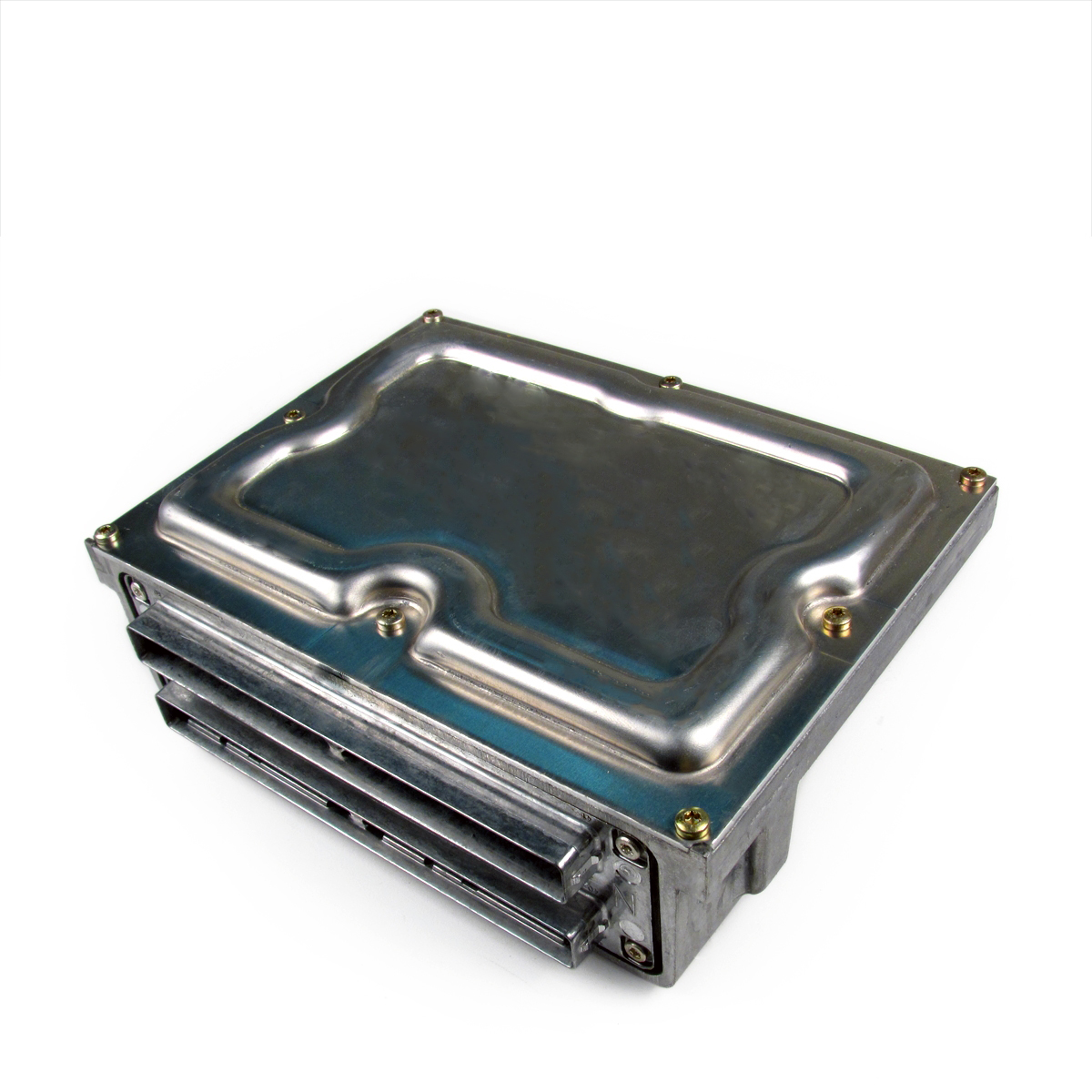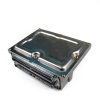Restore Peak Performance to Your Cadillac or GM Vehicle
Is your 2000-2003 Cadillac Seville, DeVille, Eldorado, or Oldsmobile Aurora suffering from frustrating and unpredictable issues? Problems like a persistent check engine light, erratic shifting, stalling, or a no-start condition can often be traced back to a failing Powertrain Control Module (PCM). This computer is the brain of your vehicle, orchestrating everything from fuel injection and ignition timing to transmission shifts and emissions controls. When it begins to fail, the symptoms can be widespread and difficult to diagnose. Don’t let a faulty computer sideline your luxury vehicle. This is a direct-fit, professionally programmed PCM, service number 12573503, designed to restore your vehicle’s original performance and reliability.
From the Diagnostic Bay
We had a 2002 Cadillac DeVille come into the shop with an intermittent crank-no-start condition that was driving the owner crazy. He’d already replaced the battery, crank sensor, and even the fuel pump, but the car would still randomly refuse to start, especially after it had been driven for a while and was hot. Our initial scans showed no communication with the PCM. After letting the vehicle cool down, it would start right up. This pointed to a classic case of thermal failure within the engine computer. The circuit board develops micro-fractures that separate when hot and reconnect when cool. We installed a VIN-programmed PCM, and the problem was solved instantly. The owner was thrilled to have his reliable DeVille back on the road without the constant worry of being stranded.
Solving Issues with the 2000-2003 Seville PCM
The PCM in these GM vehicles, particularly those with the Northstar V8 engine, is a complex component that lives in a harsh environment under the hood. Over time, heat cycles and vibrations can lead to internal component failure. Our solution eliminates the guesswork. We take a high-quality replacement module and flash it with the latest GM-certified software specific to your vehicle’s VIN. This ensures that all parameters for your engine, transmission, and options are perfectly matched, just as it came from the factory. This is not a one-size-fits-all part; it’s a precise solution for your specific car.
Common Failure Symptoms
- ✔ Persistent Check Engine Light with communication or internal processor fault codes (e.g., P0601, P0603, P0605).
- ✔ Intermittent stalling, especially when the engine is warm.
- ✔ Complete no-start or crank-no-start conditions.
- ✔ Harsh, erratic, or delayed automatic transmission shifting.
- ✔ A noticeable drop in fuel economy and overall engine power.
- ✔ Inability for scan tools to communicate with the PCM.
- ✔ Malfunctions in other systems, like cooling fans running constantly.
A Simple, Plug-and-Play Solution
Forget about expensive dealership visits and the hassle of towing your vehicle for programming. This PCM arrives at your door ready for installation. Simply provide us with your vehicle’s 17-digit VIN during or after checkout, and our technicians will handle the programming. The process is straightforward: disconnect the battery, unplug the electrical connectors from your old PCM, unbolt it from its bracket in the left-hand (driver’s side) engine compartment, and install the new one in its place. In most cases, a simple security relearn procedure is all that’s needed to get you back on the road.
This module, part number 12573503, is the correct and updated service replacement for several original part numbers, ensuring wide compatibility. It is a direct replacement for service numbers: 12562481, 12571591, 12573503, and 12573650. It fits a range of GM vehicles, including:
- 2000-2003 Cadillac Seville (LH engine compartment)
- 2000-03 Cadillac DeVille (LH engine compartment)
- 2000-02 Cadillac Eldorado (LH engine compartment)
- 2001-2003 Oldsmobile Aurora (4.0L & 3.5L)
- 2006 Chevrolet SSR (next to air box)
Frequently Asked Questions
Why do I need to provide my VIN?
Your Vehicle Identification Number (VIN) is essential because it allows us to program the PCM with the exact software and calibrations for your specific car. This includes engine size, transmission type, emissions standards, and anti-theft system (VATS) information, ensuring a seamless and correct installation.
Will I need to do anything after installing this PCM?
Yes, you will likely need to perform a security relearn procedure, also known as a VATS relearn. This process syncs the new PCM with your car’s anti-theft system. It’s a simple procedure that typically involves turning the key to the ‘ON’ position for 10-15 minutes, then off, and repeating two more times. Instructions are readily available online for your specific model.
Is this a difficult part to install myself?
For someone with basic mechanical skills, this is a very manageable job. The PCM is typically located in the driver’s side engine compartment, often near the air filter box. The main steps are disconnecting the battery, carefully releasing the wiring harness connectors, and removing a few bolts. No special tools are required for the physical installation.
This part number is different from my original. Will it work?
Yes. Automotive manufacturers often update and supersede part numbers over time to improve reliability or consolidate inventory. Part number 12573503 is the correct, updated GM service replacement for the other numbers listed, including 12571591 and 12562481. It will function identically to your original when programmed correctly.
How can I be sure my PCM is the actual problem?
While the symptoms listed are strong indicators, it’s always best to have a proper diagnosis. Key signs include internal processor fault codes (P0601-P0606), a lack of communication with a professional scan tool, or symptoms that change with temperature (failing when hot). If other potential causes like sensors or wiring have been ruled out, the PCM is the likely culprit.


